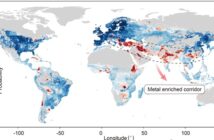The average price of bare agricultural land in England and Wales hit a new all-time high of £9,250/acre in the first quarter of 2024.
According to the latest Farmland Index ran by property consultancy Knight Frank, the firm’s Q1 Index saw farmland values rise by 1% rise over the previous quarter.
This takes the annual rate of price growth to 6%.
See also: Spring land sales could surge suggest Carter Jonas
The report also saw farmland values outperform other major asset classes over the 12-month period, including the FTSE 100 (+4%), UK house prices (by 1%) and prime central London residential properties (-2%).
Only gold fared better, with an 11% increase.
Andrew Shirley, head of rural research at Knight Frank, said: “The farmland market has remained remarkably resilient amid economic headwinds.
“Our research highlights that low supply volumes combined with strong demand from a wide range of buyers, including those looking to participate in environmental schemes, are supporting prices.”
The Farmland Index Q1 for 2024 also showed a number of drivers helping to support farmland values in the first quarter, which include increased government funding for environmental land management programmes.
Continued buying activity from those mitigating rollover tax liabilities is also applying upward pressure on prices.
Supply remained constrained in Q1, with limited publicly marketed land for sale.
The recent HMRC announcement that land in environmental schemes still qualifies for Agricultural Property Relief on inheritance tax has also provided reassurance among landowners.
Looking ahead, Knight Frank says that the phasing out of EU farm subsidies and lower commodity prices could affect the market.
However, the fundamental supply demand imbalance is expected to keep prices within a narrow range.
Will Matthews, head of Farms & Estates at Knight Frank said: “Despite short-term challenges like subsidy reforms and fluctuating commodity prices, the underlying fundamentals driving demand for agricultural land remain very favourable.
“With limited supply, farmland continues to be an attractive asset class that can provide a hedge against inflation and exposure to the growing environmental marketplace.”
He concluded by saying that ongoing investor interest is expected throughout 2024.




